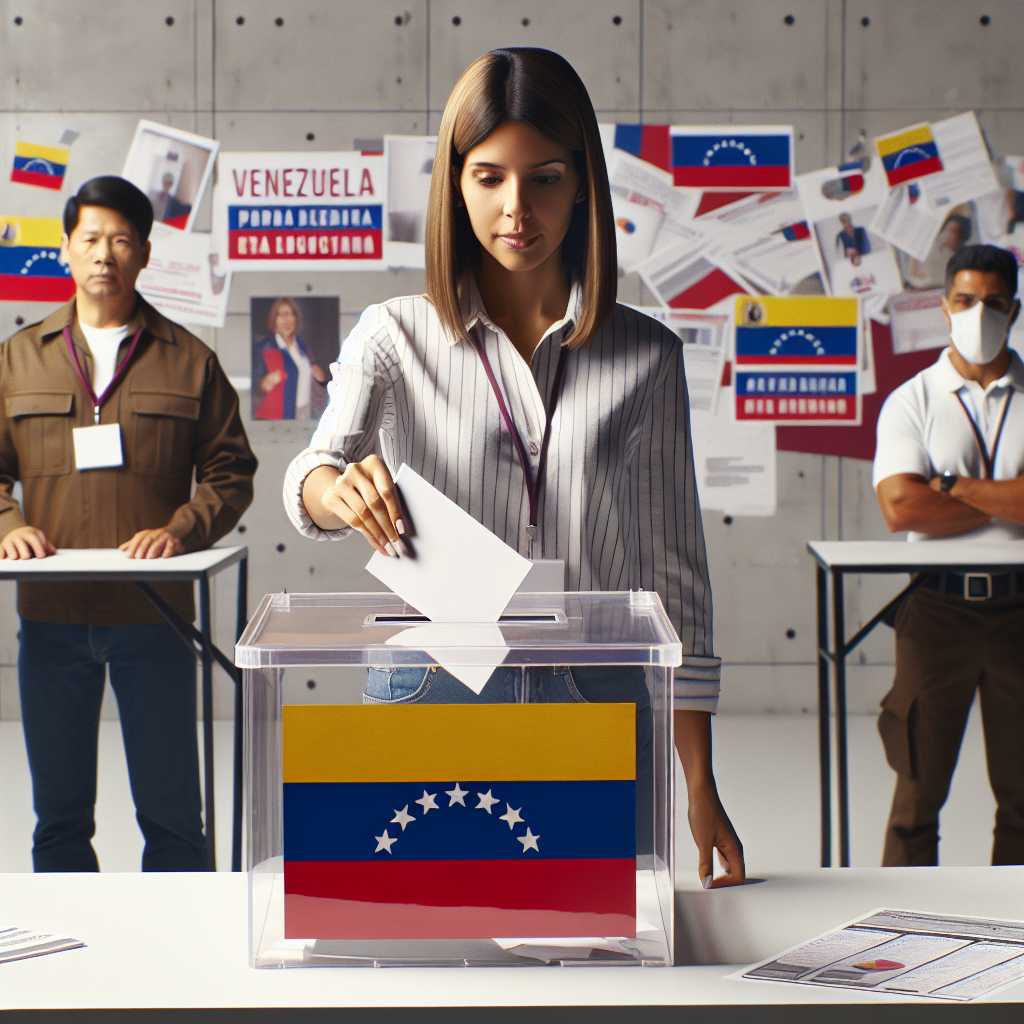## Analysis of the Upcoming 2024 Venezuelan Elections: Challenges, Expectations, and the Political Landscape ###
The Context of Venezuela’s 2024 Elections
Since the late Hugo Chávez’s bolivarian revolution, Venezuelan politics have been characterized by deep divisions and challenges including hyperinflation, social unrest, and international sanctions. The electoral landscape leading up to the 2024 general elections is marked by these challenges, with both the governing United Socialist Party of Venezuela (PSUV) and opposition groups gearing up for a pivotal contest. In light of these dynamics, the 2024 elections promise to be both contentious and critical for the future of Venezuela.
The Electoral System and Procedures
Venezuela runs a presidential system of government with national elections typically every six years. The 2024 election process will be handled by the National Electoral Council (CNE), which oversees the fairness and legality of elections. International observers have criticized past Venezuelan elections for irregularities and opposition voices have cast doubts on the CNE’s impartiality.
Governing Party Stance and Strategies
The PSUV will aim to maintain its hold on power in 2024. Having the advantage of incumbency means access to state resources and media while campaigning. The party aligns itself with Chávez’s leftist ideologies promoting socialism and anti-imperialism, promising continuation of social welfare policies amidst economic difficulties.
Opposition Parties’ Positioning and Tactics
The opposition is fragmented but aims to unite against PSUV dominance. Multiple alliances between centrist, center-right and anti-Maduro leftist factions are attempting to present an inclusive platform. Their key arguments include the need for economic liberalization, restoration of democratic norms, and reviving Venezuela’s global standing.
Socio-Economic Factors Affecting the Electorate
Venezuela’s vast oil reserves have historically been central to its economy but falling oil prices combined with mismanagement has precipitated an economic collapse. Hyperinflation, shortages of basic goods, healthcare decline, and mass emigration shape public perception and will heavily influence voting behavior in 2024. How candidates propose to address these crises will be pivotal.
Campaign Issues and Promises by the Contestants
On the campaign trail, expect economic revitalization measures to dominate discourse alongside human rights, constitutional reforms, international relations especially with regards to existing sanctions imposed by many Western nations.
International Community’s Role and Expectations
The international community is split on Venezuela’s political legitimacy, with some countries recognizing opposition leaders as interim heads-of-state following disputed past election outcomes. How external powers such as the US, EU and regional organizations respond could affect both the campaigns and external perceptions of the electoral process.
Potential Influences of Diaspora Votes and Social Media
With a sizable Venezuelan diaspora, policymakers are considering ways for emigrants to participate in elections. Meanwhile, social media channels are likely to play significant roles in engaging younger voters and those abroad balancing propaganda efforts by state-aligned entities.
Security Concerns Related to Election Activities
Given that past elections have witnessed violence and allegations of intimidation tactics, physical safety during campaigns and polling days is a major concern both domestically and among monitoring organizations who argue that safeguards against such threats are crucial for democratic legitimacy.
The Process of Monitoring Elections for Fairness
National observers alongside international groups like the EU and OAS may potentially be invited to monitor proceedings; their assessments might either reinforce or question the election’s integrity depending on whether recommended standards are adhered to.
The Outcome’s Effect on Future Governance in Venezuela
With presidential powers coupled with control over parliamentary assemblies at stake, the election outcome will significantly shape Venezuela’s future direction ruling-party consolidation or an opposition-led reform movement could both dramatically reshape Venezuelan policy internally and in relation to foreign countries.
